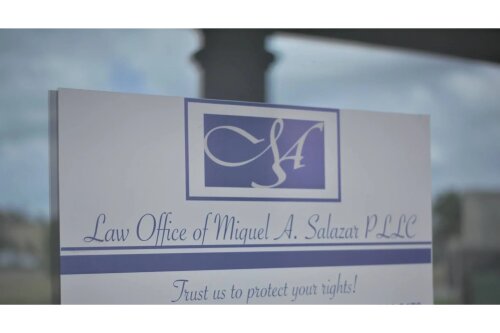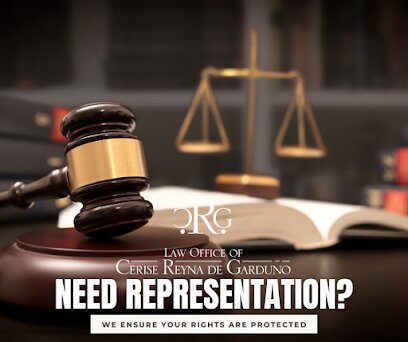Best Criminal Litigation Lawyers in Indiana
Share your needs with us, get contacted by law firms.
Free. Takes 2 min.
Or refine your search by selecting a city:
List of the best lawyers in Indiana, United States
About Criminal Litigation Law in Indiana, United States
Criminal litigation in Indiana refers to the legal process where the government prosecutes individuals or entities accused of committing crimes under Indiana law. Unlike civil litigation, which deals with disputes between individuals or organizations, criminal litigation involves offenses considered harmful to society as a whole. Cases can range from misdemeanors like petty theft to serious felonies such as robbery or homicide. In Indiana, criminal cases are prosecuted by local or state authorities and can lead to penalties like imprisonment, probation, fines, or community service. The process typically includes investigation, arrest, charging, arraignment, trial, and sentencing.
Why You May Need a Lawyer
Criminal litigation involves complex laws and procedures that may be difficult to navigate without professional help. You may need a criminal defense lawyer in a variety of situations, including:
- Being arrested or charged with a crime, whether a misdemeanor or felony
- Receiving a summons or subpoena related to a criminal case
- Facing investigation by law enforcement
- Being wrongfully accused of a crime
- Needing advice before speaking to police or investigators
- Wanting to negotiate a plea bargain or reduce charges
- Seeking to expunge or seal a criminal record
- Dealing with probation or parole violations
Without legal assistance, you could face severe consequences, including jail time, loss of rights, or a permanent criminal record. A lawyer can protect your rights and provide strategies for the best possible outcome.
Local Laws Overview
Indiana’s criminal laws are detailed in Title 35 of the Indiana Code. The state categorizes offenses as infractions, misdemeanors, and felonies. Misdemeanors are less serious crimes punishable by up to one year in jail, while felonies are more serious with potential prison sentences and long-term consequences. Key legal aspects include:
- Legal Process - After arrest, suspects have the right to remain silent, to an attorney, and to a prompt initial hearing. Bail can be set depending on the case.
- Classification of Crimes - Felonies range from Level 1 (most serious) to Level 6 (least serious). Misdemeanors are classified as Class A, B, or C.
- Plea Bargaining - Many cases are resolved through negotiations rather than trial, allowing for potentially reduced charges or penalties.
- Trial Rights - Defendants have the right to a jury trial, to present evidence, to confront witnesses, and to avoid self-incrimination.
- Expungement - Indiana allows for clearing certain criminal records under specific conditions, restoring some rights to former offenders.
Understanding these procedures and laws is important, but consulting with an experienced attorney ensures your rights are protected at every stage.
Frequently Asked Questions
What should I do if I am arrested in Indiana?
If you are arrested, stay calm, do not resist, and do not answer questions without an attorney present. You have the right to remain silent and request a lawyer before talking to police.
What is the difference between a felony and a misdemeanor?
Misdemeanors are less severe crimes, with penalties up to one year in jail. Felonies are more serious, often involving longer prison sentences, larger fines, and greater personal consequences.
Can I get out of jail after being arrested?
Depending on the offense, you may be eligible for bail. Bail allows you to be released from jail while awaiting trial, usually by paying a set amount or under certain conditions determined by the court.
Do I need a lawyer for a misdemeanor charge?
While not always required, having a lawyer can help protect your rights, negotiate better outcomes, and avoid unintended consequences like a permanent criminal record.
What happens at a first court appearance or arraignment?
At arraignment, you are formally informed of the charges, advised of your rights, and asked to enter a plea. Bail may also be set at this stage.
Can charges be dropped or reduced?
Yes, charges can sometimes be dropped or reduced, often through plea bargaining or if there is insufficient evidence. Your attorney can negotiate on your behalf or request case dismissal when appropriate.
What are my rights during a criminal investigation?
You have the right to remain silent, to an attorney, and to refuse searches without a warrant. Anything you say may be used against you, so legal representation is strongly recommended.
How long does a criminal case take to resolve?
Timelines vary. Some cases resolve quickly through negotiated pleas, while others may take months or years if they go to trial, especially for serious offenses.
Can I have my criminal record expunged in Indiana?
Indiana law allows for expungement of certain criminal records, depending on the offense, your criminal history, and the time that has passed since completion of the sentence.
What should I look for when choosing a criminal defense lawyer?
Look for attorneys experienced in Indiana criminal law, with a strong local presence, good communication skills, and a track record handling cases similar to yours.
Additional Resources
Several organizations and agencies can provide information or support if you face criminal litigation in Indiana:
- Indiana Public Defender Council - Provides resources and information for those unable to afford private counsel.
- Indiana State Bar Association - Can help you find qualified criminal defense attorneys.
- Indiana Legal Services - Offers free or low-cost legal help for eligible individuals.
- Indiana Courts - Official source for court forms, process information, and public records.
- Local Prosecutor’s Offices - For information on charges and case status.
Next Steps
If you or someone you know is facing criminal charges in Indiana, it is crucial to act quickly and decisively. Here is how you can proceed:
- Do not speak with law enforcement or other investigators without first consulting a lawyer.
- Contact a reputable criminal defense attorney familiar with Indiana law as soon as possible.
- Gather any information or documents related to your case, such as arrest records or correspondence from the court.
- Prepare a list of questions and concerns to discuss with your attorney during your initial consultation.
- Follow your lawyer’s advice regarding court appearances, bail, and communication with authorities.
- Stay informed about your case and check official court records to monitor developments.
Obtaining experienced legal representation ensures that your rights are protected and your case is handled in accordance with Indiana law. Early legal advice often leads to better outcomes in criminal litigation.
Lawzana helps you find the best lawyers and law firms in Indiana through a curated and pre-screened list of qualified legal professionals. Our platform offers rankings and detailed profiles of attorneys and law firms, allowing you to compare based on practice areas, including Criminal Litigation, experience, and client feedback.
Each profile includes a description of the firm's areas of practice, client reviews, team members and partners, year of establishment, spoken languages, office locations, contact information, social media presence, and any published articles or resources. Most firms on our platform speak English and are experienced in both local and international legal matters.
Get a quote from top-rated law firms in Indiana, United States — quickly, securely, and without unnecessary hassle.
Disclaimer:
The information provided on this page is for general informational purposes only and does not constitute legal advice. While we strive to ensure the accuracy and relevance of the content, legal information may change over time, and interpretations of the law can vary. You should always consult with a qualified legal professional for advice specific to your situation.
We disclaim all liability for actions taken or not taken based on the content of this page. If you believe any information is incorrect or outdated, please contact us, and we will review and update it where appropriate.
Browse criminal litigation law firms by city in Indiana
Refine your search by selecting a city.













